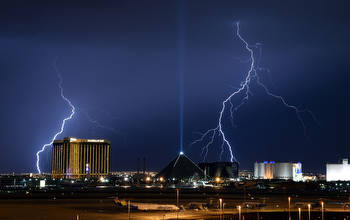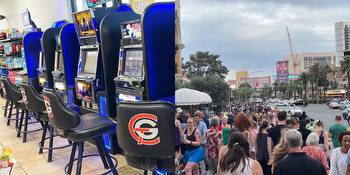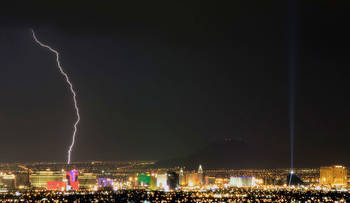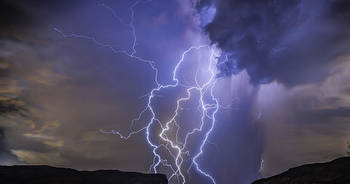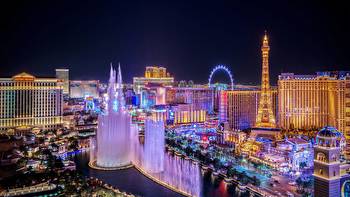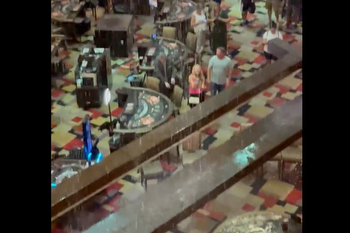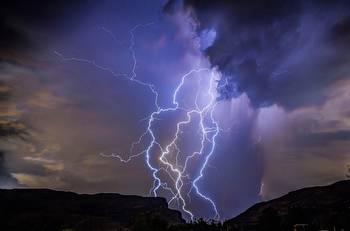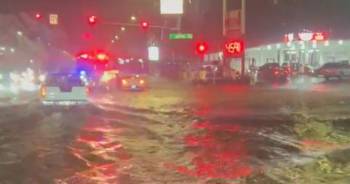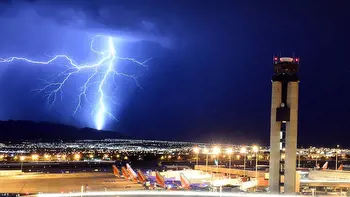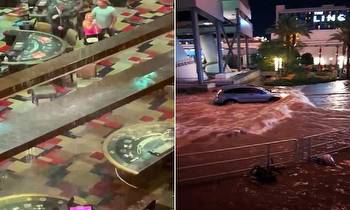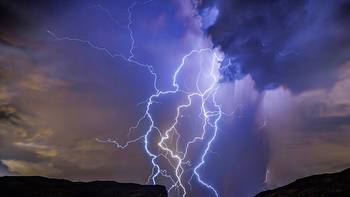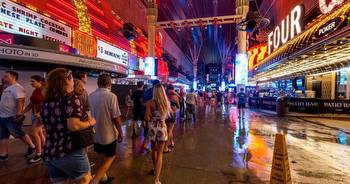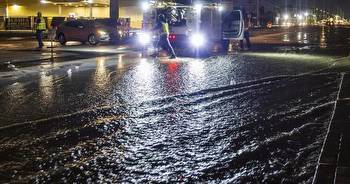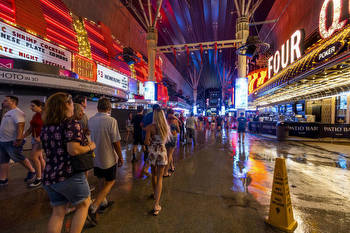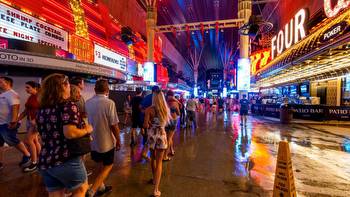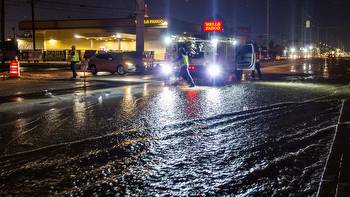Monsoon Season In Las Vegas Brings Casino Flooding, Two Dead
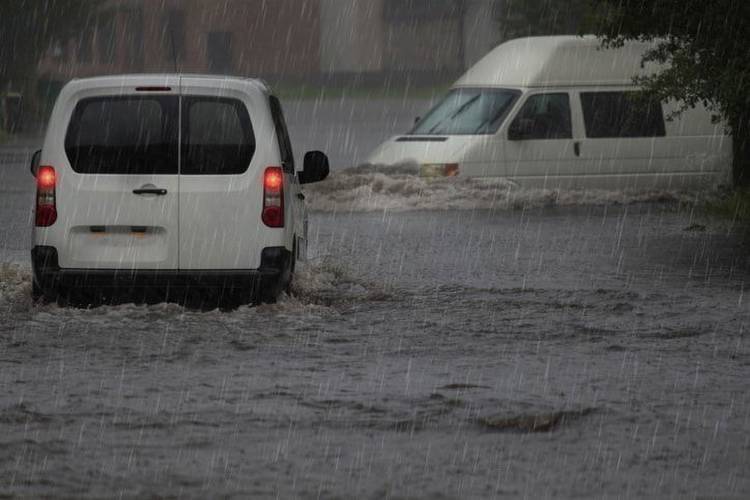
It’s no secret Las Vegas has a monsoon season. Every year between mid-June or early July and mid-September, residents know to look out for heavy rainfall. Flash floods are common and the occasional minor damage to homes. But this monsoon season has been crazy compared to years past. In fact, the National Weather Service is naming this the wettest monsoon season in a decade. In a tweet on August 12, the NWS stated, “With 0.58 inches added to the tally yesterday, the monsoon season in #Vegas has delivered 1.28″ of rainfall so far! That makes this the wettest monsoon in ten years! And we’ve still got a month and a half left to add to our total!”
So what does an aggressive monsoon season mean for a city not exactly built for heavy rainfall. There have been multiple reports of flooding damage to schools, homes and casinos this season. Most recently, the Planet Hollywood hotel and casino on The Strip was the recipient of some serious water damage. If you haven’t seen the video posted by NBC News this past weekend, you should. It looks like a waterfall feature was installed in the middle of the casino floor. You can watch the video here.
But this year’s monsoon season has brought more than just an impromptu tourist attraction at a strip casino. More serious consequences have been reported. The underground tunnels famous in Las Vegas are prone to dangerous floods that come with no warning. And two bodies so far have been found in or near these tunnels. After a heavy rainfall on Thursday, the Las Vegas public works crews and firefighters who were removing flooding debris from a tunnel discovered a man’s body near Las Vegas Blvd. Fox5Vegas reported that man was already deceased when he was found in the pile of debris. And another person was rescued from the flooding but later died at the hospital.
Local authorities are urging Las Vegas residents and tourists to be cautious for the remainder of the monsoon season, which is expected to last about another month.
–Wendy Rush, 96.3KKLZ Las Vegas
25 States With The Most Historic Sites At Risk Of Flooding
Because of the deterioration and fragility of historical buildings, as well as long-term degradation of the natural environment around these structures, historic sites are often at serious risk of flooding. Stacker identified historic buildings of national significance across the U.S. located in census tracts with very or relatively high risk of flooding, using data from FEMA’s National Risk Index and the National Register of Historic Places. The National Park Service outlines six criteria for what makes a historic building on the registry nationally significant, a less rigorous designation than being considered a National Historic Landmark. FEMA calculated the risk of flooding for each census tract by combining geospatial and historic flood-event data from the National Flood Insurance Program and NOAA. For each state, a maximum of three historic sites are listed in order of their flood risk, though many states on this list have more at-risk sites in total. Colorado, Connecticut, and Idaho did not have nationally significant sites on the registry located in high-risk flood regions; as such they are absent from this list.








